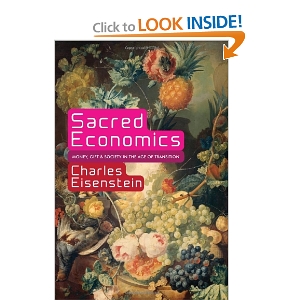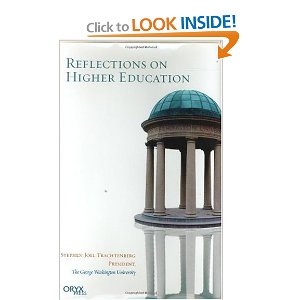
Charles Eisenstein
Sacred Economics is the second book in the new Evolver Editions imprint, following Jose Arguelles Manifesto for the Noosphere. Other books in the first season include What Comes After Money, The Secret Tradition of the Soul, The Four Global Truths, The Electric Jesus, Star Sister, and Nothing and Everything.
I read a lot, and the one word that really describes this book is “integrative.” The author describes, in three parts, what is wrong with what he calls the “economics of separation,” today's money and financial network economy that lacks soul or spirit; its alternative, the “economics of reunion” in which all forms of transaction have memories, gifts and reciprocal gifts and localized forms of exchange rule, and economics is fully integrated with society to produce social and cultural dividends. The third and last part closes the circle with a hundred-page discourse (double-spaced large print, this is not a hard book to read) on how to live within the new economy in which gifting, community, and beauty are integrated.
Throughout the book the author evolves his core point: money is “hard” and nurtures external diseconomies, including grave destruction of cultural and social intangible value-gradually the author builds up to his conclusion, that beauty is a tangible value, that relatedness is a tangible value, and that in the past century or two we have stripped so much value from what it means to be human as to have become less than human, less than we can be.
Continue reading “Review: Sacred Economics – Money, Gift, and Society in the Age of Transition”


